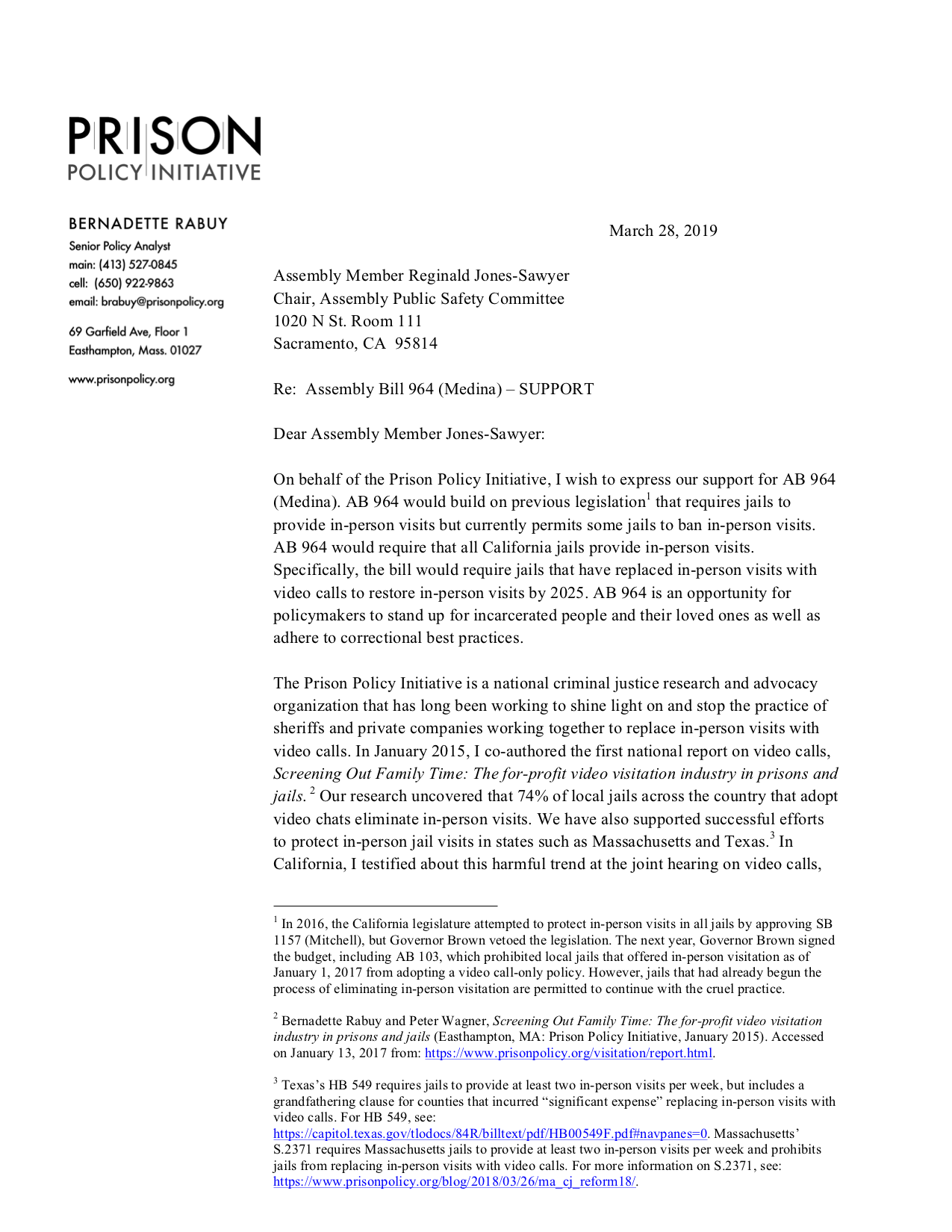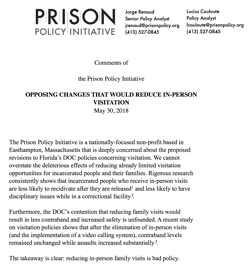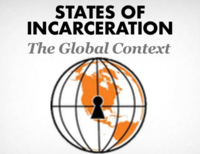The cost of jail phone calls punishes people in the most desperate circumstances, most of whom have not been convicted of a crime.
by Wendy Sawyer,
February 5, 2019
It’s easy to see how people in state prison, who spend years or decades behind bars, are hurt by the cost of phone calls. But less obvious is how people in jail, who are usually behind bars for much shorter periods, can be hit even harder by the same cost.
The answer has to do with why people are in local jails in the first place. In many cases, it’s solely because they are poor. On a given day, 3 out of 4 people held in jails under local authority have not even been convicted, much less sentenced. Very often, they simply cannot afford the bail amount set by the court as a condition of release. (Men in jails reported earning a median of $17,676 per year before incarceration (in 2018 dollars). For women, the median pre-incarceration income was just $11,184 per year, well below the poverty line.)
When people can’t get together the funds to get out of jail, exorbitant phone rates only make a difficult time even harder. Pretrial detention is an extremely stressful experience; detainees are often at risk of losing their jobs, housing, and even custody of their children. Being locked up, even for a short time, can interrupt medical care and can exacerbate mental health problems. It’s no coincidence that suicide risk is highest in the first week of jail incarceration. Calls with loved ones are essential for people under these conditions, who may need to coordinate childcare or elder care, make arrangements for missing work, have prescriptions brought to the facility, or simply have someone to talk to while incarcerated. Expensive phone calls further punish people in jails – most of whom, again, have not been convicted of a crime.
Even beyond the potential damage to one’s health and personal affairs, pretrial detention also negatively affects case outcomes, and it’s in this way that high phone rates from jails do the most harm to the justice process itself. People who can’t afford money bail are forced to organize their defense from jail, where it is much harder to contact people who can help – and the cost of calling them from jail is even more limiting. In a 2016 opinion in a case about the proper use of phone calls in pretrial processes, Judge Jenny Rivera acknowledged the difficulty of preparing a defense while detained:
“Pretrial detention hampers a defendant’s preparation of his defense by limiting ‘his ability to gather evidence [and] contact witnesses’ during the most critical period of the proceedings…The detained suspect…lacks a similar ability [to a defendant free on bail or their own recognizance] to contact witnesses and gather evidence.”
People detained pretrial are more likely to plead guilty just to get out of jail, more likely to be convicted, and more likely to get longer sentences. Costly phone calls play a central role in this injustice by limiting how often and how long pretrial detainees can talk to their families and friends in the service of their defense. This makes it harder for defense attorneys to coordinate with family to build mitigation cases or track down witnesses. As a result, pretrial detainees often present a weaker defense than they would have if they had been able to make calls freely (or better, had not been detained in the first place).
Furthermore, on a systemic level, high phone rates from jails hurt indigent defendants by draining already-scarce resources from public defenders’ offices. As the Missouri State Public Defenders explained in a letter to the FCC, these offices pick up the tab for phone calls from clients in jail, which can add up to tens of thousands of dollars every year. In the long term, they say the cost “reduces our ability to communicate with our clients about their cases, diminishes the quality of representation we are able to provide, and thus risks denying clients their Sixth Amendment right to effective counsel.”
So jail phone companies (and jails themselves, which get kickbacks on these calls) are essentially subsidized by public defenders – and by extension, taxpayers – while public defenders are left with even fewer resources to help indigent clients. Ultimately, this, too, makes conviction more likely.
But, wait, you might ask, if you’ve been paying attention to this issue: Didn’t the government solve this problem years ago? Didn’t the FCC limit how expensive phone calls from correctional facilities could be?
Partly, yes: In 2014, the FCC set limits on rates for out-of-state calls from prisons and jails. But here too, unfortunately, people in jails get shortchanged. People in jails almost always make in-state calls, meaning that the FCC’s rate caps don’t apply to 92% of calls from jail. Instead of paying 21 cents or less per minute, as they would for out-of-state calls, people in jail calling loved ones in-state often still pay $1 per minute or more.
The cost of these calls continues to get less attention from regulators, journalists and the public than it deserves. There’s an irony in that: When poor people in jail can’t afford to make phone calls, the fairness of the justice system is distorted – and everyone pays an outsized price.





